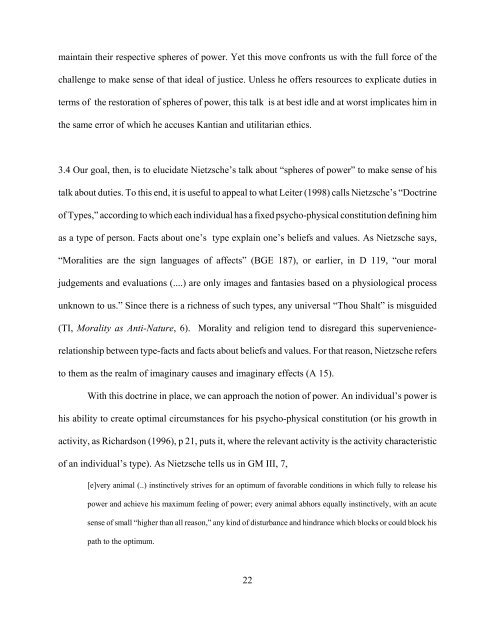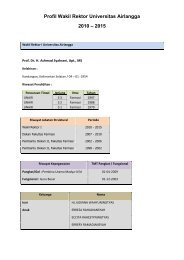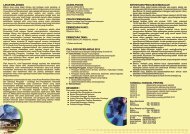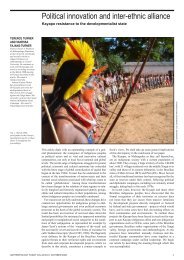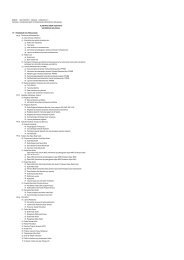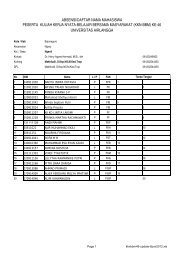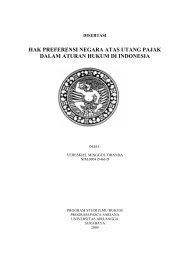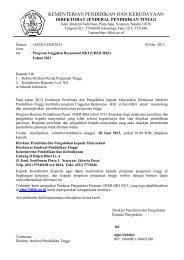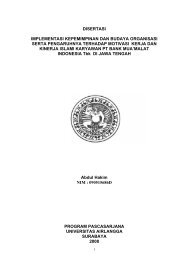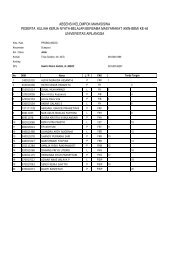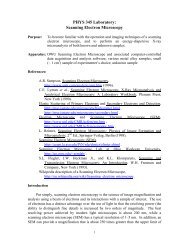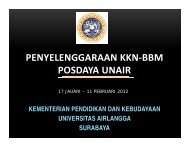Nietzsche's Naturalistic Ethics - UNAIR | E-Book Collection
Nietzsche's Naturalistic Ethics - UNAIR | E-Book Collection
Nietzsche's Naturalistic Ethics - UNAIR | E-Book Collection
You also want an ePaper? Increase the reach of your titles
YUMPU automatically turns print PDFs into web optimized ePapers that Google loves.
maintain their respective spheres of power. Yet this move confronts us with the full force of thechallenge to make sense of that ideal of justice. Unless he offers resources to explicate duties interms of the restoration of spheres of power, this talk is at best idle and at worst implicates him inthe same error of which he accuses Kantian and utilitarian ethics.3.4 Our goal, then, is to elucidate Nietzsche’s talk about “spheres of power” to make sense of histalk about duties. To this end, it is useful to appeal to what Leiter (1998) calls Nietzsche’s “Doctrineof Types,” according to which each individual has a fixed psycho-physical constitution defining himas a type of person. Facts about one’s type explain one’s beliefs and values. As Nietzsche says,“Moralities are the sign languages of affects” (BGE 187), or earlier, in D 119, “our moraljudgements and evaluations (....) are only images and fantasies based on a physiological processunknown to us.” Since there is a richness of such types, any universal “Thou Shalt” is misguided(TI, Morality as Anti-Nature, 6). Morality and religion tend to disregard this superveniencerelationshipbetween type-facts and facts about beliefs and values. For that reason, Nietzsche refersto them as the realm of imaginary causes and imaginary effects (A 15).With this doctrine in place, we can approach the notion of power. An individual’s power ishis ability to create optimal circumstances for his psycho-physical constitution (or his growth inactivity, as Richardson (1996), p 21, puts it, where the relevant activity is the activity characteristicof an individual’s type). As Nietzsche tells us in GM III, 7,[e]very animal (..) instinctively strives for an optimum of favorable conditions in which fully to release hispower and achieve his maximum feeling of power; every animal abhors equally instinctively, with an acutesense of small “higher than all reason,” any kind of disturbance and hindrance which blocks or could block hispath to the optimum.22


